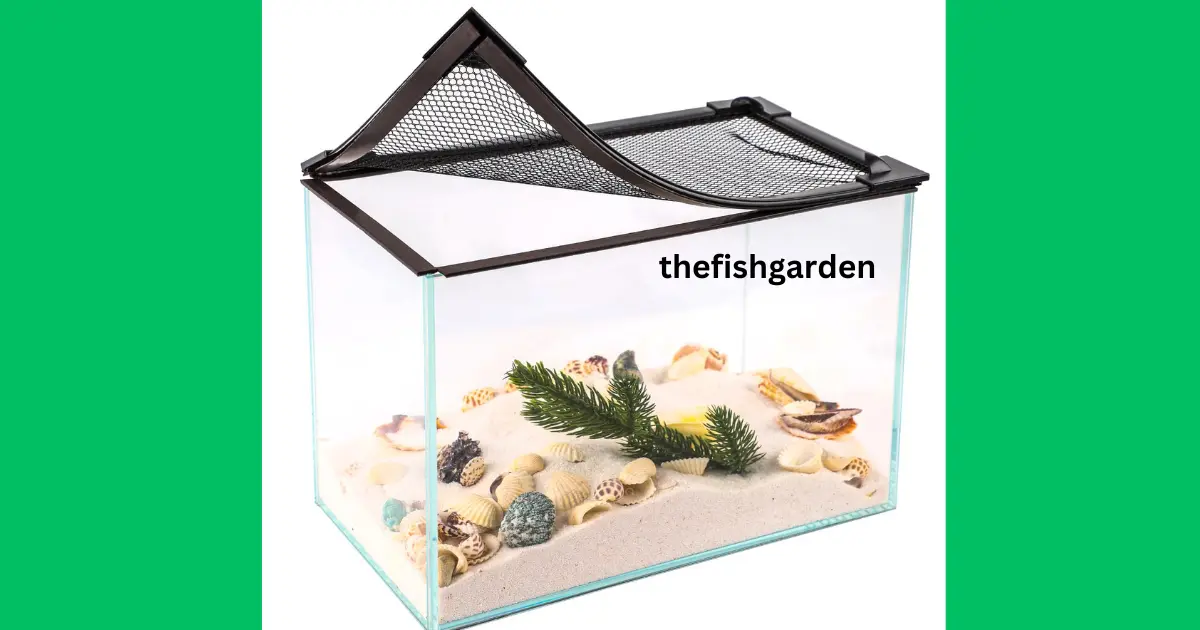When setting up a fish tank, one often encounters the question: “Do fish tanks need lids?” This seemingly simple inquiry sparks a deeper conversation about the welfare of aquatic life, tank maintenance, and environmental factors. In this comprehensive guide, we delve into the significance and benefits of using lids for fish tanks.
The Importance of Fish Tank Lids
Fish tank lids serve multiple crucial functions in maintaining a healthy aquatic environment. Let’s explore some key reasons why they are essential:
Evaporation Control
Fish tank lids help minimize water evaporation, ensuring a stable water level within the aquarium. This is particularly important for freshwater and saltwater tanks where maintaining proper salinity levels is crucial for fish health.
Containment of Jumping Fish
Certain fish species, such as bettas and gouramis, are known to be avid jumpers. Without a lid, there’s a risk of these fish leaping out of the tank, leading to injury or death. A secure lid prevents such incidents and ensures the safety of your aquatic pets.
Protection from Contaminants
Lids act as a barrier, preventing external contaminants like dust, debris, and pollutants from entering the aquarium. This helps maintain water quality and reduces the frequency of tank cleanings.
Temperature Regulation
Fish tank lids aid in maintaining stable water temperatures by reducing heat loss. This is especially beneficial for tropical fish species that require specific temperature ranges for optimal health.
Benefits of Using Fish Tank Lids
Aside from their importance, fish tank lids offer several benefits that contribute to a thriving aquarium environment:
Improved Safety
By preventing fish from jumping out and keeping external pollutants at bay, lids create a safer habitat for aquatic life. This reduces the risk of fish fatalities and promotes a stress-free environment.
Enhanced Aesthetic Appeal
Lids come in various designs and materials, allowing aquarists to customize their tanks according to personal preferences. Additionally, lids can incorporate built-in lighting systems, further enhancing the visual appeal of the aquarium.
Reduced Maintenance
With fewer contaminants entering the tank, filtration systems can operate more efficiently, reducing the frequency of water changes and maintenance tasks. This saves time and effort for aquarium enthusiasts.
Minimized Water Loss
By mitigating evaporation, fish tank lids help conserve water, particularly in arid climates or regions experiencing drought conditions. This promotes environmental sustainability and responsible water usage.
Do All Fish Tanks Need Lids
While fish tank lids offer numerous benefits, their necessity may vary depending on certain factors:
Tank Inhabitants
Consider the species of fish you intend to keep. If you have non-jumping species in a well-maintained environment, a lid might be optional. However, for tanks housing jumpers or located in high-traffic areas, lids are advisable.
Environmental Conditions
Evaluate the surrounding environment for potential risks like airborne pollutants or curious pets. In such cases, using a lid becomes imperative to safeguard the aquarium inhabitants.
Personal Preference
Ultimately, the decision to use a lid rests on personal preference and specific aquarium requirements. Some aquarists prefer the open-top look for their tanks, while others prioritize functionality and safety.
Choosing the Right Fish Tank Lid
When selecting a lid for your fish tank, consider the following factors:
Material
Opt for lids made from durable materials such as glass or acrylic, ensuring longevity and clarity for optimal viewing. Avoid lids that may warp or degrade over time, compromising their effectiveness.
Fit and Security
Ensure the lid fits securely onto the tank to prevent gaps where fish could escape or contaminants could enter. Look for options with adjustable features to accommodate various tank sizes and configurations.
Ventilation
Choose lids that provide adequate ventilation to maintain oxygen levels within the tank while preventing heat buildup. Incorporating ventilation holes or mesh panels can help achieve optimal airflow.
Conclusion
In conclusion, fish tank lids play a vital role in maintaining a safe, healthy, and aesthetically pleasing aquatic environment. From controlling evaporation and protecting against contaminants to enhancing safety and reducing maintenance, the benefits of using lids are undeniable. While not all fish tanks may require lids, their inclusion offers numerous advantages for both novice and experienced aquarists. By carefully selecting the right lid for your tank and considering individual needs and preferences, you can create an optimal habitat for your aquatic companions.
FAQs
Are fish tank lids necessary for all aquariums
- Fish tank lids are not always necessary but are highly recommended for tanks housing jumping fish species or located in environments prone to pollutants.
Can I use any material for a fish tank lid
- It’s advisable to choose durable materials like glass or acrylic for fish tank lids to ensure longevity and clarity for optimal viewing.
Do lids affect the oxygen levels in the aquarium
- Properly designed lids with adequate ventilation do not significantly impact oxygen levels in the aquarium and help maintain optimal airflow.
How do I prevent condensation under the lid
- To prevent condensation, ensure proper ventilation and consider installing a fan or using a lid with adjustable airflow features.
Are there decorative lids available for fish tanks
- Yes, there are various decorative lids available in different designs and materials to complement the aesthetic of your aquarium while providing functionality.
By addressing these FAQs, aquarists can gain valuable insights into the importance and practical aspects of using lids for fish tanks.
This comprehensive guide offers valuable insights into the significance, benefits, and considerations associated with using lids for fish tanks. Whether you’re a seasoned aquarist or a novice enthusiast, understanding the role of lids in maintaining a healthy aquatic environment is essential for the well-being of your fish and the overall enjoyment of your aquarium hobby.
